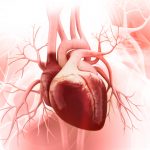
WORDS DR CHOO KOK KUAN
 FEATURED EXPERT FEATURED EXPERTDR CHOO KOK KUAN Consultant Paediatrician and Paediatric Cardiologist Subang Jaya Medical Centre |
The most common heart disease among children is known as congenital heart defects.
This condition occurs when the heart or the blood vessels near the heart do not develop normally before birth.
HOW COMMON IS THIS CONDITION?
According to our Ministry of Health, the incidence of congenital heart defects among children is about 8 to 10 per 1,000 live births.
With an average of 500,000 deliveries in Malaysia each year, the number of children born with congenital heart defects is about 5,000 a year, of which two-thirds will require surgical intervention.
THE CAUSES & RISK FACTORS
Most congenital heart defects have no known cause.
They may sometimes run in families.
Some congenital heart defects may be associated with genetic disorders, such as Down syndrome, Turner syndrome, Williams syndrome, etc.
Some children have a higher risk of developing congenital heart defects if the mother has diabetes or rubella, or has taken certain medications such as anti-epileptic drugs, during pregnancy.
DETECTION OF CONGENITAL HEART DEFECTS
Sometimes a heart defect can be diagnosed before a baby is born.
However, defects are usually identified days or even months after birth, when symptoms become obvious.
Less serious congenital heart defects may not show any noticeable signs or symptoms, so they may only be diagnosed later in childhood.
It is also possible to have a heart defect and show no symptoms at all.
POSSIBLE SIGNS THAT A BABY OR YOUNG CHILD MAY HAVE CONGENITAL HEART DEFECTS |
|
WILL A CHILD WITH CONGENITAL HEART DEFECTS BE OKAY?
As a result of medical advancements, the outlook for congenital heart diseases is increasingly positive.
Most children with this condition reach their adulthood.
In fact, children with simple conditions may lead completely normal lives, while those with more complex conditions usually face more challenges that can nevertheless be addressed with the right measures in place.
6 THINGS THAT EVERY PARENT OF CHILDREN WITH CONGENITAL HEART DEFECTS SHOULD KNOW AND DO |
|





